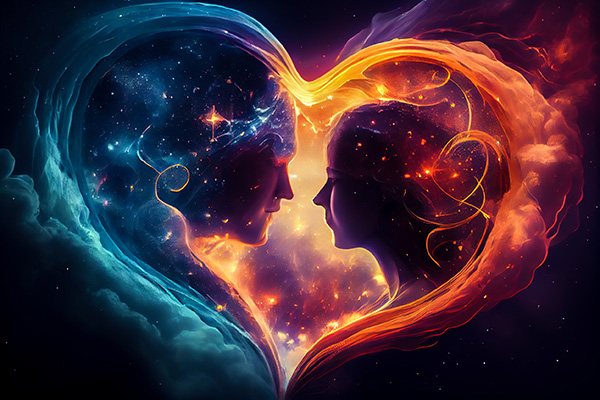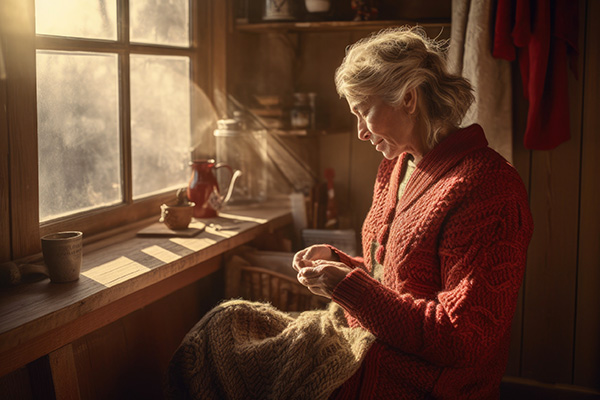suffering
Forgiving Yourself Is A Spiritual Necessity
 Self-forgiveness is more than just a mental health recommendation – it is a spiritual necessity. It is vital for the spiritually aware person to release guilt, self-blame, and self-criticism, because forgiving oneself is crucial to both personal well-being and spiritual progress. It allows for healing, growth, and the ability to live a more fulfilling and harmonious life.
Self-forgiveness is more than just a mental health recommendation – it is a spiritual necessity. It is vital for the spiritually aware person to release guilt, self-blame, and self-criticism, because forgiving oneself is crucial to both personal well-being and spiritual progress. It allows for healing, growth, and the ability to live a more fulfilling and harmonious life.
Failure to forgive ourselves can have profound personal and spiritual side effects. Carrying guilt and self-blame leads to chronic emotional distress and contributes to anxiety, depression, and low self-esteem. Over time, this can manifest itself in physical symptoms such as headaches, fatigue, or even chronic illness.
A lack of self-forgiveness undermines self-worth and hinders personal growth and development. Difficulty forgiving yourself also strains your relationships with others, as it can lead to withdrawal, defensiveness, or projecting negativity onto those around you. Without forgiveness, our negative feelings toward ourselves can fester and damage even our most cherished relationships with our loved ones and friends.
Holding onto guilt and self-blame blocks the flow of positive energy through the chakras and hinders spiritual well-being. For example, guilt often stagnates in the solar plexus chakra, affecting one’s sense of personal power. Self-forgiveness is essential for clearing such blockages in the energy field.
Forgiveness is also essential to achieving inner peace and harmony. Without it, one can experience constant inner turmoil and restlessness. When we hold onto guilt, shame, or self-blame, parts of our spiritual essence or inner divinity are suppressed or disconnected. It causes separation from one’s spiritual path or a sense of disconnection from spirit and the divine.
Not Everyone Chooses The Path Of Healing
 You’ve probably heard the phrase “what they don’t know can’t hurt them.” Sometimes this is true, but there are also times when what people choose to ignore or disregard can cause real harm – not only to themselves, but also to those around them.
You’ve probably heard the phrase “what they don’t know can’t hurt them.” Sometimes this is true, but there are also times when what people choose to ignore or disregard can cause real harm – not only to themselves, but also to those around them.
For those of us with psychic or spiritual gifts, there’s an added complexity: the ability to sense the struggles of others, which leads to the question of when and how to help.
Intuitives, channelers and healers are very aware of the energy of others, even when we’re just going about our daily routines. Whether it’s a stranger in the grocery store or a friend across the room, we tend to sense when someone is struggling with grief, trauma or stress.
We may choose to quietly send them comforting or healing energy, hoping it will ease their pain, even if only for a moment, yet the urge to help can be very strong in these situations. And while reaching out and offering help can be very uplifting or rewarding for everyone involved, there are times when our attempts to help are met with resistance, or worse, denial.
It’s especially challenging to see someone we care about turn a blind eye to their own needs or pain, and even more so when our support is disregarded or unappreciated.
One of the hardest lessons I have had to learn in both my personal and professional life is that I can only help those who are willing to help themselves. The sad truth is that sometimes people choose not to act on information that could improve their lives or change their destiny. Instead, their negativity, anger, or fear allows the problem to fester or the behavior to grow, affecting not only themselves but also their loved ones. Over time, this denial creates a cycle of suffering that affects physical, mental and karmic health and well-being, sometimes for generations.
The Unresolved Karmic Bonds Between Souls
 Have you ever found yourself thinking about an old friend or flame that you haven’t spoken to in years, and they suddenly show up in your life in the most unexpected place? This often happens when we are still energetically connected to someone.
Have you ever found yourself thinking about an old friend or flame that you haven’t spoken to in years, and they suddenly show up in your life in the most unexpected place? This often happens when we are still energetically connected to someone.
There are invisible energy cords that connect us to many different souls across dimensions and incarnations. These karmic connections are deep soul bonds that transcend time and space and span multiple lifetimes.
Those we love (or hate) – whether a partner or spouse, family members, friends – are all karmically connected to us.
Karmic connections aren’t easily severed. They also don’t simply disappear when we physically part ways in this world. These invisible cords keep us tied to those we’ve loved, lost, or even hurt—until we consciously choose to break free.
Karmic connections continue across lifetimes unless they are consciously severed and dissolved. But these energetic cords of attachment can be difficult to break. We may believe that a relationship is over on a logical level, but energetically the connection remains.
When betrayal or heartache occurs, an energy cord remains between the heart chakras of both individuals, often leading to a recurring cycle of pain and energy depletion due to these lingering connections.
Traumatic events, emotional or sexual attachments, promises, contracts and vows all create strong connections between souls. We often feel a sense of unfinished business when a promise or vow is broken or left unfulfilled.
The Hidden Wisdom In Our Traumatic Life Experiences
 In the thousands of readings I have done over the years for people from all walks of life, I have repeatedly witnessed how the crucible of life’s trials and tribulations offers profound opportunities for spiritual growth and personal transformation.
In the thousands of readings I have done over the years for people from all walks of life, I have repeatedly witnessed how the crucible of life’s trials and tribulations offers profound opportunities for spiritual growth and personal transformation.
It never ceases to amaze me how there is always a spark of wisdom or hidden blessing to be found in every life challenge or traumatic experience. Even in the worst-case scenarios, Spirit is always able to reveal the life lesson or karmic opportunity in these situations.
In a psychic reading, spirit in the form of our ancestors, spirit guides, angels and the divine can offer profound insight and guidance into our hardships and challenges.
With the akashic wisdom gathered through many generations, your higher self, ancestors, and members of your soul family can offer perspectives and experiences that shed light on your current life circumstances.
Their presence in a reading can provide a deep-rooted understanding of family patterns, ancestral karmic debts, and inherited gifts, allowing you to navigate life’s challenges with newfound clarity and resilience.
In addition, our spirit guides and angels serve as divine messengers, offering support and illumination on our journey through life. Their presence in a psychic reading brings messages of encouragement, protection and divine intervention.
The Value Of Anger In Manifesting Your Desires
 A client recently talked about her struggles with anger and that no matter what she did, she could not get rid of her ‘anger issues’. She was concerned that her anger would inevitably attract and manifest more negativity in her life.
A client recently talked about her struggles with anger and that no matter what she did, she could not get rid of her ‘anger issues’. She was concerned that her anger would inevitably attract and manifest more negativity in her life.
Spirit’s response was that there is value and wisdom in anger. The reality is that sometimes we get smoking hot, furious, explosively angry! It is a human response to events that go against our wishes and desires. If it were not a natural reaction, the experience of anger would not be part of our physical life journey.
The truth is that all negative emotions are actually a dear friend who is there to tell us something. It indicates that we are out of alignment with our Higher Self, Spirit and the Divine. When we experience fear, anxiety or anger it indicates that we are out of alignment and no longer in the flow.
A common “pain-causing” tendency is the stories we tell ourselves about the future. One of the most common narratives I find when working with clients is the one that begins: “I will be happy when…”
We create a story about the fulfilment of certain desires and then focus more on the result or outcome rather than the process and the present moment. When our happiness depends on the future fulfilment of a story, we are no longer in resonance with the present reality and out of alignment with the universal flow. We are no longer living fully, we are merely playing an impatient waiting game.
Grieving The Loss Of Loved Ones With Grace
 Few of us have not experienced the loss of a loved one, a parent, a partner or even a child. Most of us have also witnessed or experienced the many ways in which people try to cope with such an insurmountable loss.
Few of us have not experienced the loss of a loved one, a parent, a partner or even a child. Most of us have also witnessed or experienced the many ways in which people try to cope with such an insurmountable loss.
Coping with the huge gaping hole that such a loss leaves in our lives can have a negative impact on people’s behaviour. Some turn to extremes: alcohol, drug abuse, overeating, prescription drugs, or any of the other things people use to numb their pain and deflect the overwhelming feelings associated with loss and grief.
What we ultimately learn is that there is no set time frame in which such profound pain can be dealt with. It can take weeks, months, years or even decades for some. But even when the worst is over, we never really get over the sense of loss. We simply learn to cope and get on with our lives, forever changed, as best we can.
However, the greatest tribute we can pay the loved ones we have lost is to grieve with grace and dignity. Abusing substances or indulging in other distractions may temporarily numb our pain, but how does that honour the memory of the one we professed to care so much about? It also does not allow us to confront and process our emotions in a healthy and constructive manner. Grieving is natural and necessary. When we try to avoid our grief, we miss out on opportunities for personal growth, self-reflection, and ultimately finding peace with the loss.
